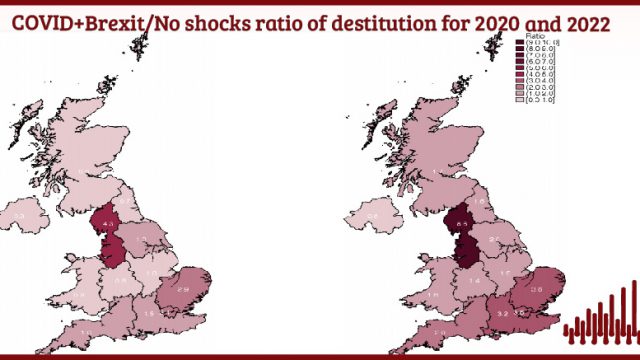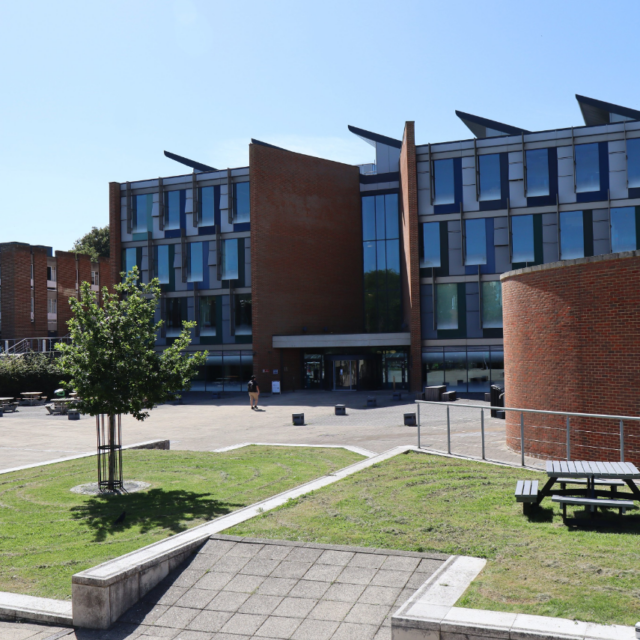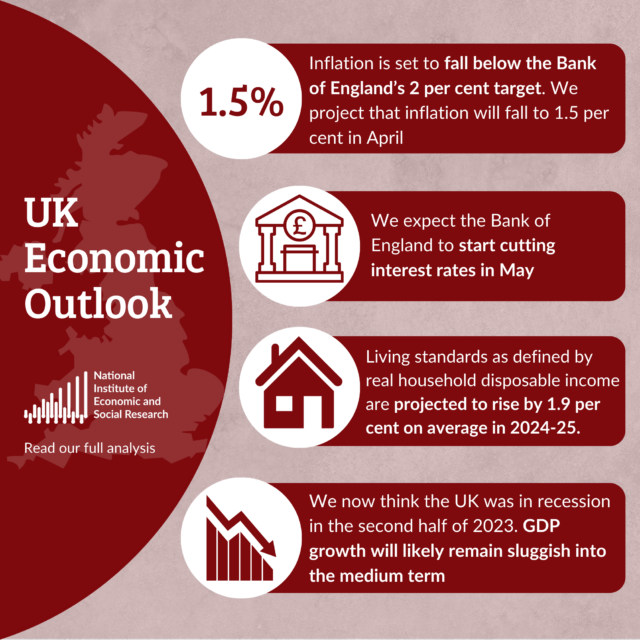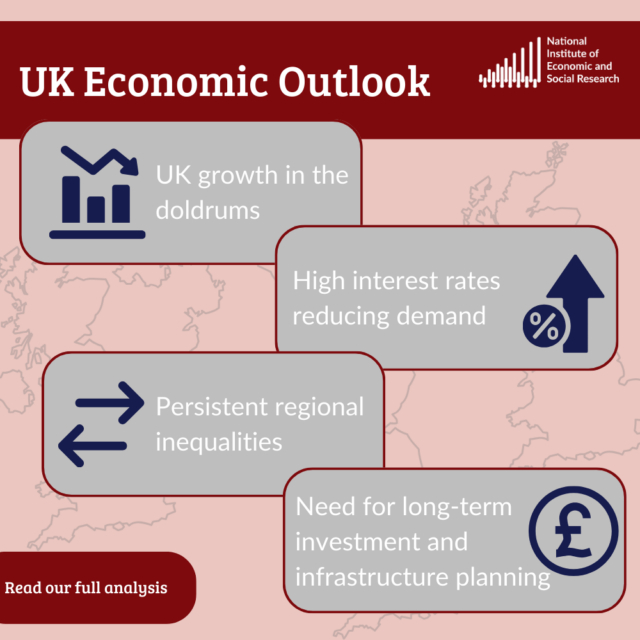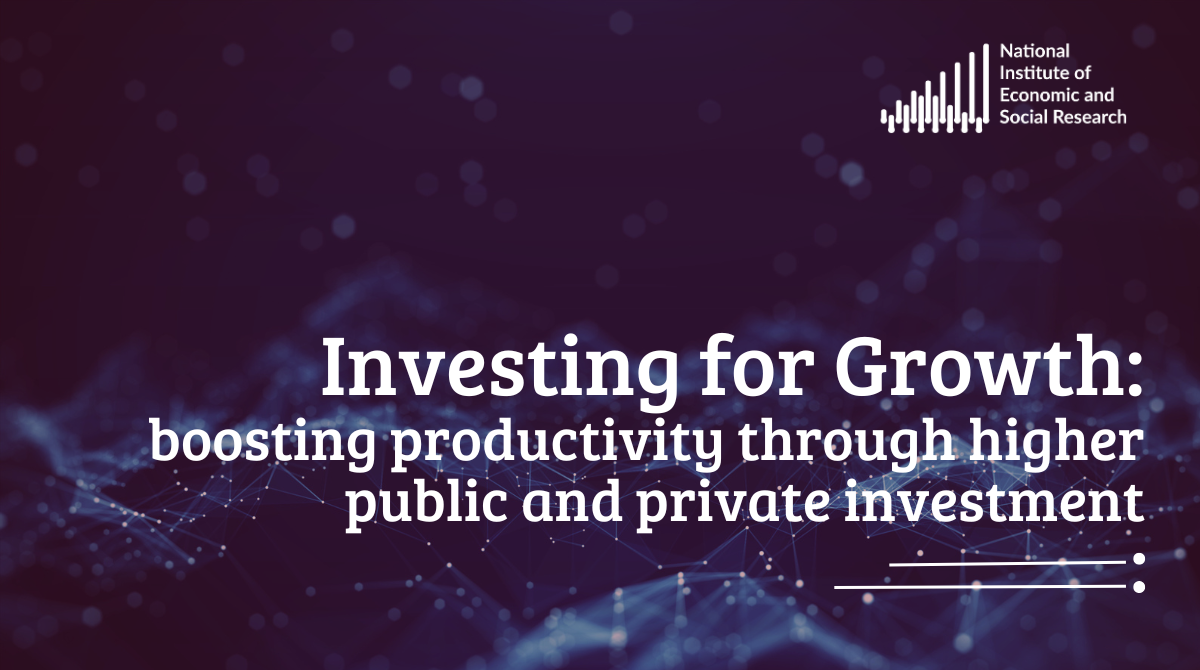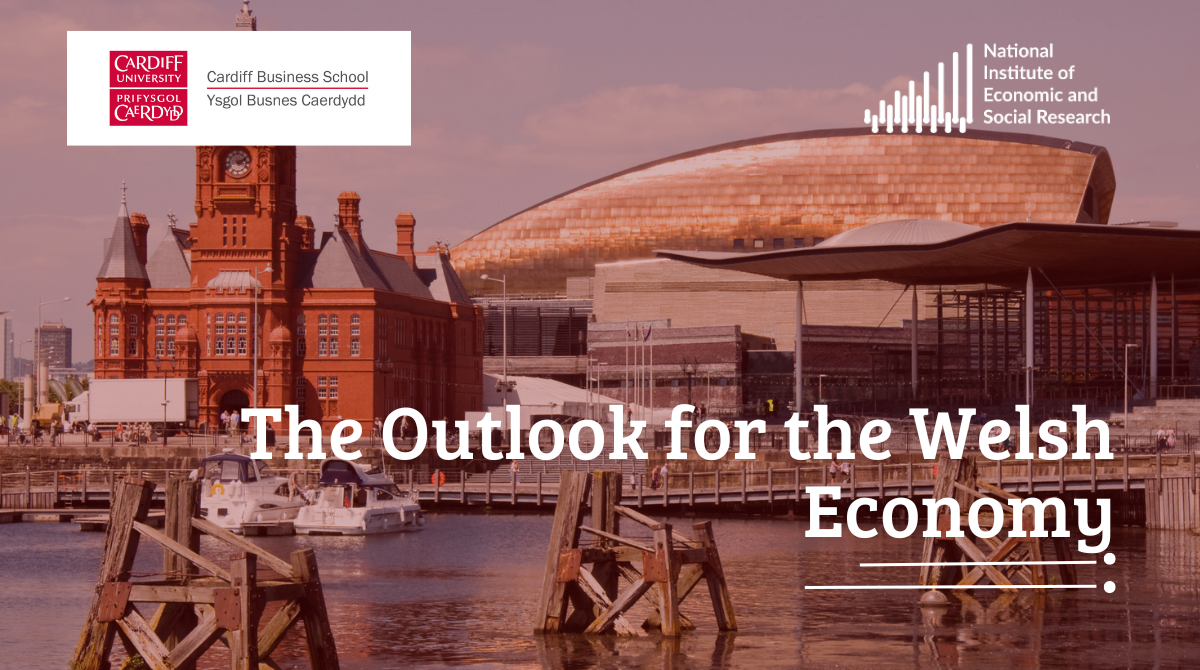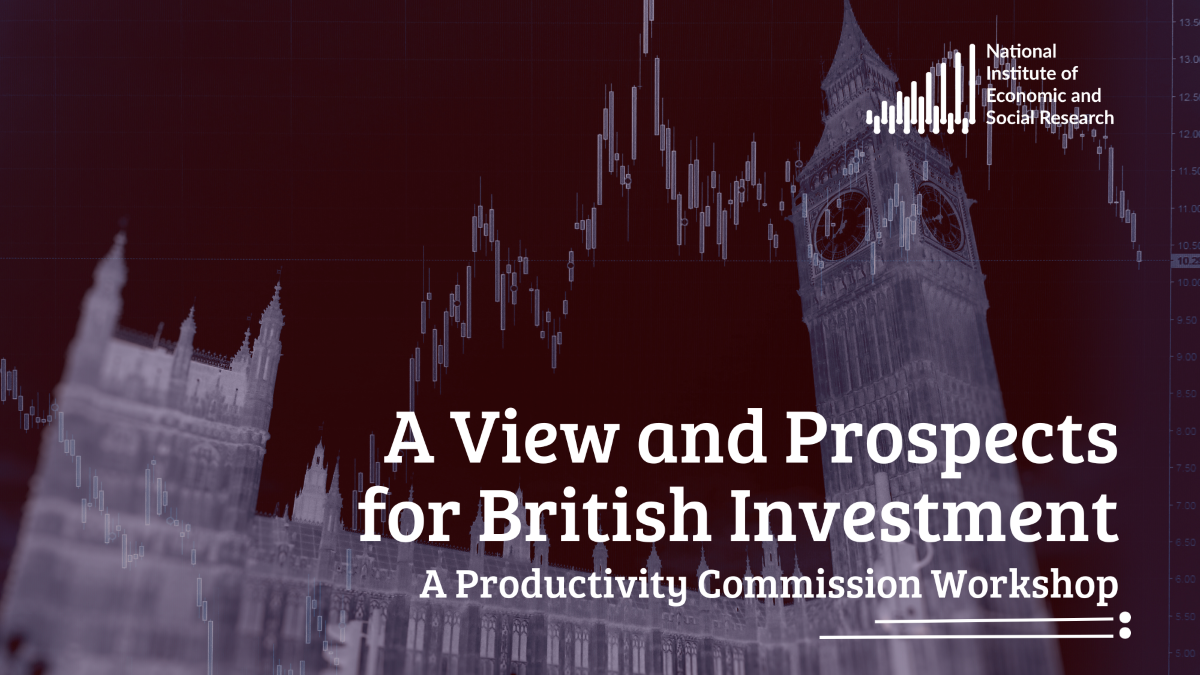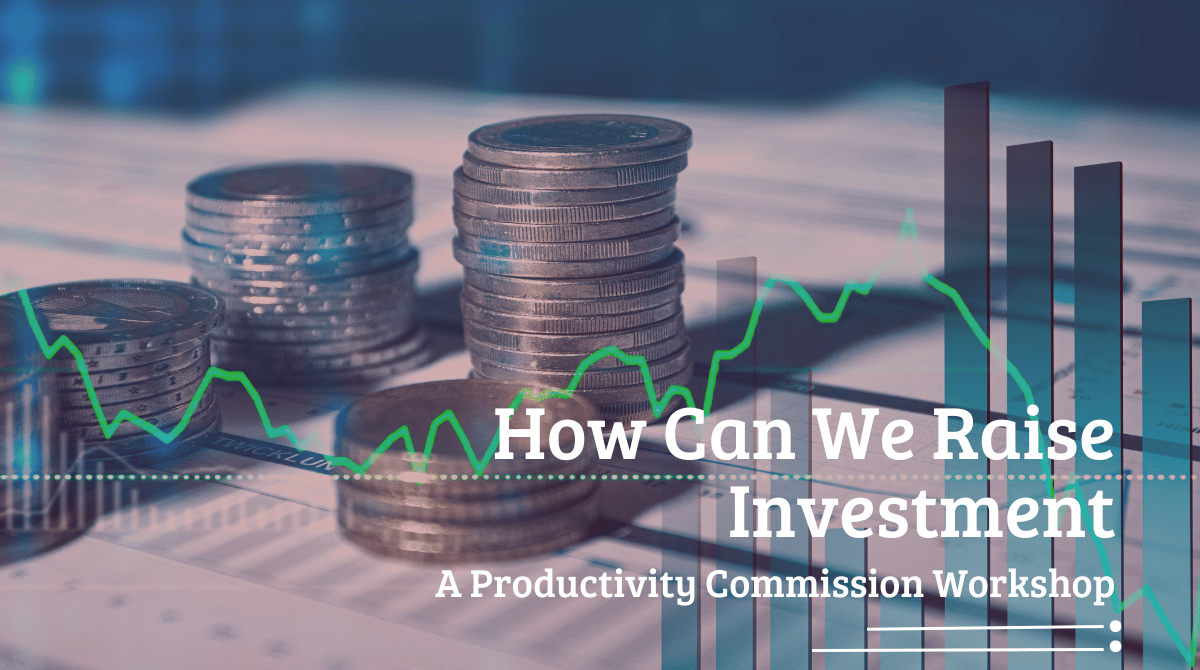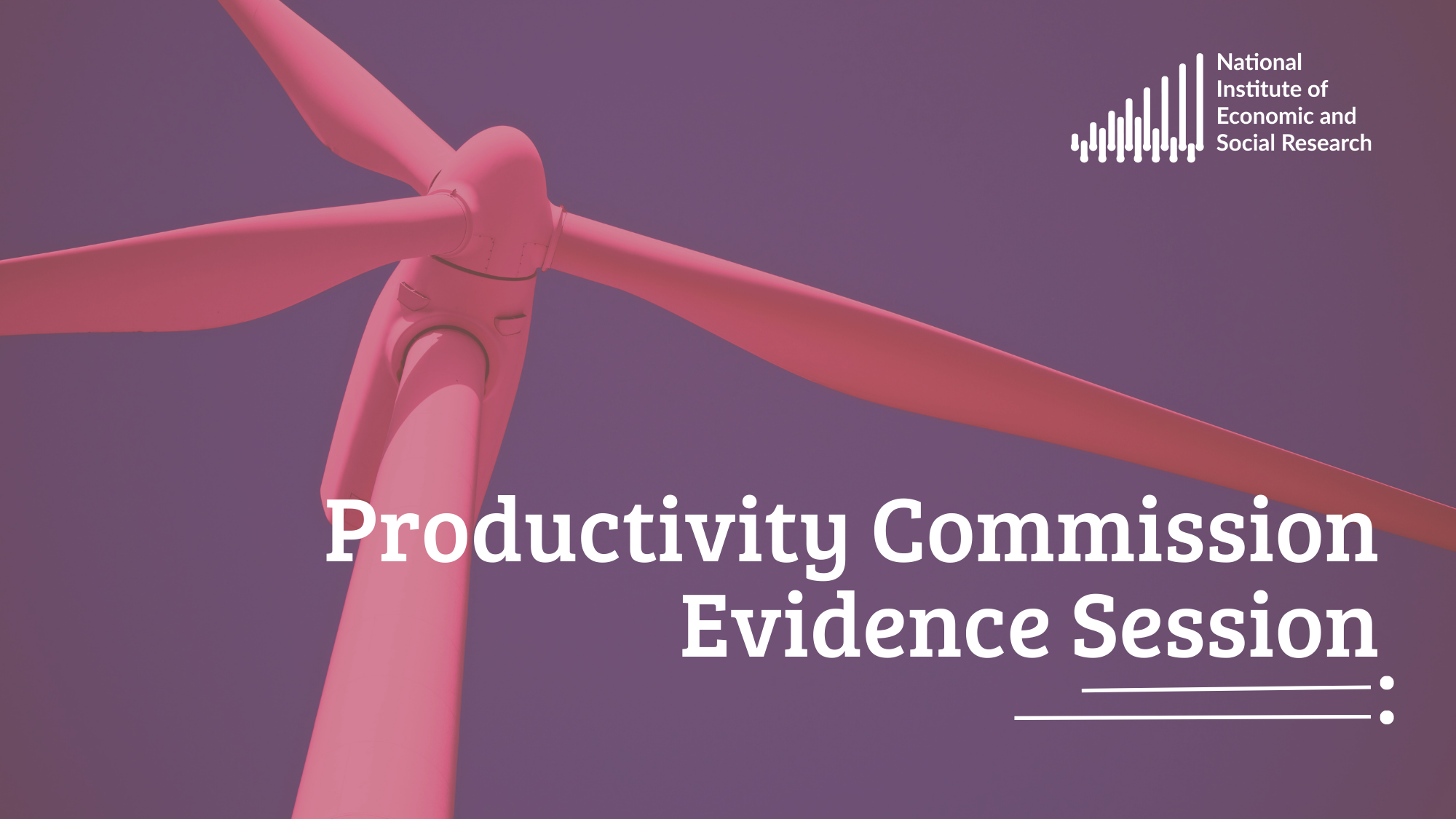The “Levelling Up” Policy
 Pub. Date
Pub. Date
 Pub. Type
Pub. Type

The National Institute of Economic and Social Research (NIESR) hosted the Business Conditions Forum (BCF) on 12th February. The aim of the BCF is to have informed and analytical discussions of data and surveys to better understand the current state of the UK economy. The discussions are held under Chatham House rules to encourage free and open discussion. NIESR is grateful to the ESRC and the Impact Accelerator Award (IAA) for funding the BCF.
Agenda
The meeting discussed NIESR’s latest GDP forecast, the government’s proposed “levelling up” policy, and trends emanating from recent business conditions surveys.
Overview
The opening remarks commented on the latest ONS data on the performance of the UK economy, which confirmed NIESR’s forecast of zero growth in the fourth quarter on 2019. In its monthly GDP Tracker, published on 11 February 2020, NIESR is forecasting service-sector driven growth of 0.2 per cent in the first quarter of 2020. Turning to post-Brexit plans, the March budget is expected to be focused on `levelling up’ income levels across the United Kingdom. This will require a concerted campaign to raise productivity in the regions after more than a decade of stagnation. However, additional public investment of approximately £20 billion per year is unlikely to have more than a modest impact on productivity and therefore will not be sufficient to offset the negative effect of Brexit. Further, NIESR views the Chancellor’s aim of raising UK economic growth to around 2¾ per cent a year as unrealistic in the current global economic environment.
Most participants shared the view that businesses saw a boost in confidence after the general election, but that this strengthening is slowly dissipating at the turn of the year.
Market conditions
Survey data on confidence collected on SMEs showed the biggest swing on record in the immediate aftermath of the December election. However, the participant noted that this move from negativity to optimism in early 2020 has not endured. The initial data in January shows confidence has come back down, reflecting the fact that responses to the survey were a relative reaction of collective sighs of relief from a lot of business leaders following the election. Now, businesses are facing the reality of Brexit negotiations, ongoing concerns around access to skills in the labour market and issues with business costs.
Similarly, another participant noted that the Deloitte Chief Financial Officer (CFO) survey reported the biggest spike in confidence in the 11 years that the survey has been run, in the immediate aftermath of the general election. However, CFOs were also asked whether they are pursuing a defensive (cost control) or expansionary (investment and hiring) strategy. The answers revealed that there is much less shift in CFOs’ positioning and their priorities for the year ahead. A question was raised about whether businesses have always held a defensive strategy, to which the participant noted that this has only been the case since the third quarter of 2019. He did however note that there was a big spike in the number of firms adopting a defensive strategy following the EU referendum, with cost control being the strategy given the most priority.
There was improved optimism among food and drink manufacturers, but net confidence remains negative. Asked about their level of confidence for the year ahead, responses were that there was increased confidence, but this is coming from quite a low base. The survey also revealed that larger businesses were more optimistic than smaller ones. Hard data has showed that the food and drink sector has performed slightly better than overall manufacturing industry in terms of [growth in] gross value added. Amongst the surveyed food and drink manufacturers, the main concern to business was the cost of ingredients, as a result of exchange rate fluctuations. Second on the list was inconsistent policies on plastic reductions, closely followed by issues related to border and customs.
Manufacturers were also asked about their investment plans. Responses revealed a survey record high of manufacturers saying expanding capacity is a reason to invest in the next year, largely because expectations for activity has improved. This slightly contrasts with manufacturers’ responses in previous surveys where the primary reason for investing was for replacements.
Data collected on the labour market revealed that improved confidence following the general election had fuelled an improvement in hiring conditions. Decisions that were put on hold due to uncertainty are now being made, with firms now willing to hire more permanent staff. However, overall the recovery in job market has been mild.
Regarding regional differences in productivity while there has been evidence of disparity across most industries, amongst food and drink manufacturers, data from 2018 (the most up-to-date data for the food and drink sector) revealed there is an even spread across the UK. Another participant mentioned that the concern around productivity in the regions has largely been centred around access to finance. There is increasing evidence that a lot of start-ups are looking to move to London because access to finance has limited productivity growth across the regions, with 2/3rds of investment schemes done in London South East.
On the housing market, a survey revealed that affordability, and not Brexit related uncertainty, was the main factor preventing people from buying properties. This was particularly the case for would-be first-time buyers. The participant noted that although he is expecting a bounce back in confidence, it is expected that this will be fairly muted around the housing market.
A recent piece in the Financial Times highlighted the fact the UK economy has grown at a faster rate than the EU over the past year. The argument put forward is that public sector spending has been expanding quite strongly which has not been the same in other countries. [UK GDP growth of 1.4 per cent last year included a 0.7 percentage point contribution from government spending.]
The meeting was chaired by Garry Young (NIESR). A total of 17 organisations were represented which covers all the major survey organisations and policy making departments/institutions. The next meeting is scheduled for 13th May 2020.










